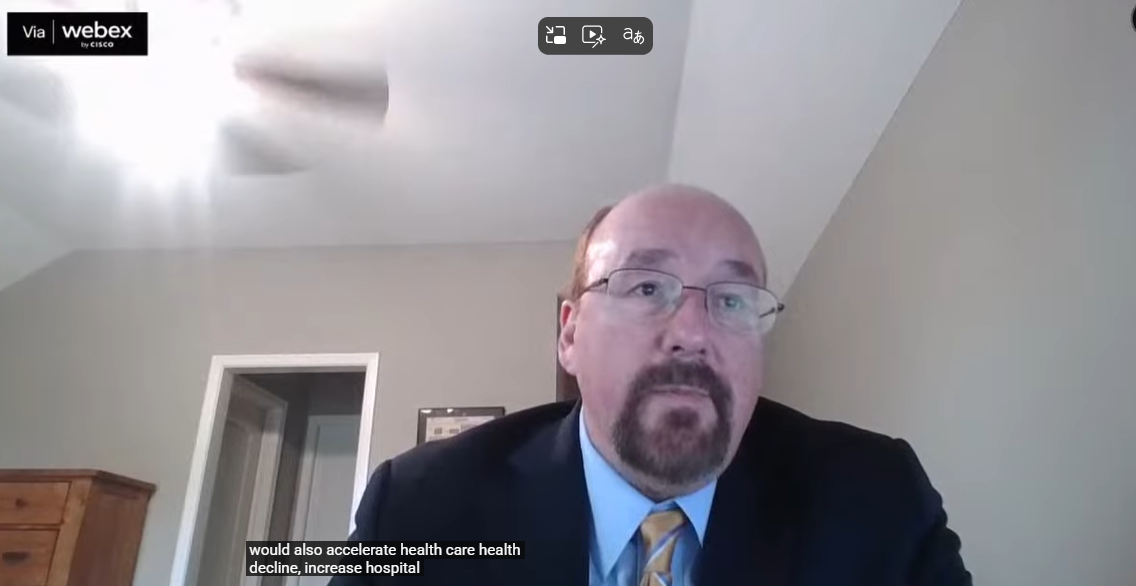Advocacy in Action (September 2024): KABC Testifies at the Bob Bethell KanCare Oversight Committee
On Monday, August 26th, Libby Hastings, Communication and Public Relations Coordinator, had the honor of presenting testimony on behalf of KABC to the Robert G. Bethell Joint Committee on Home & Community Based Services & KanCare Oversight Committee. Our goal was clear: to advocate for the reinstatement of the "Explore Your Options" (EYO) resource guide, a vital tool for older Kansans and their caregivers.
In recent months, our work with the Douglas County Senior Resource Directory has underscored the critical need for a comprehensive resource guide. Since launching the directory, we've seen firsthand how essential it is for older adults to have access to reliable, up-to-date information about the services and resources available to them. The response to our directory has been overwhelmingly positive, with individuals and families expressing their appreciation for a resource that helps them navigate the complexities of long-term care.
The importance of the EYO guide was highlighted in the
Final Report of the Kansas Senior Care Task Force to the 2023 Kansas Legislature. A key recommendation from the Task Force was for the Kansas Department for Aging and Disability Services (KDADS) to reinstitute the EYO guide, which would provide a centralized, accessible source of information for older adults across the state. The guide would be published online and in print, ensuring that those without internet access can still benefit from this essential resource.
The need for such a guide is urgent. As one of the working groups from the Kansas Senior Care Task Force noted, it is critical for older adults and caregivers to know where to access service information and resources when the need for long-term supports and services arises. The lack of access to reliable, accurate information can lead to frustration, confusion, and potentially harmful outcomes for seniors and their families.
While some areas of the state, like Johnson County and Central Plains, have found ways to create their own versions of the EYO guide, most counties do not have the resources or capacity to do so without state assistance. That’s why we’re asking this committee to encourage and support KDADS in bringing back the EYO guide. By doing so, we can ensure that all older Kansans, regardless of where they live, have the information they need to make informed decisions about their care.






